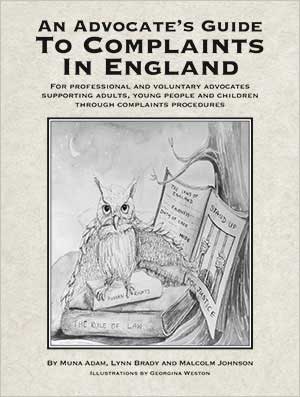Explained in its simplest form, an advocate helps their clients to understand their rights under the Mental Health Act. A client can also apply to the court to have the nearest relative appointed to represent them, or the nearest relative can make that application.
To help us understand the role of an advocate, Mental Health Today asked Malcolm Johnson, author of An Advocates Guide to Complaints in England, to explain further.
Are you a professional or voluntary advocate supporting a client through the complaints process?
An Advocate’s Guide to Complaints in England is a concise and informative handbook which provides accessible advice with a minimum of legal jargon and can be used as a reference book for all those who undertake advocacy.
The aim is that the advocate will be able to ‘dip into’ these chapters for advice as and when needed and use the book as a comprehensive route map for the main complaints systems in England. This should be particularly helpful for advocates dealing with complaints that may cross between different institutions, such as social care and mental health.
Take a look inside the manual by requesting your free sample chapter below
Price: £28.00
Share This Post:










What about advocacy as an intermediary for things like doctors and landlords etc.. Many of us struggle to communicate effectively when dealing with such people and it can lead to major consequences!
I agree with you I am aware some members of our Post diagnostic support group have offered support to each other in situations as you describe